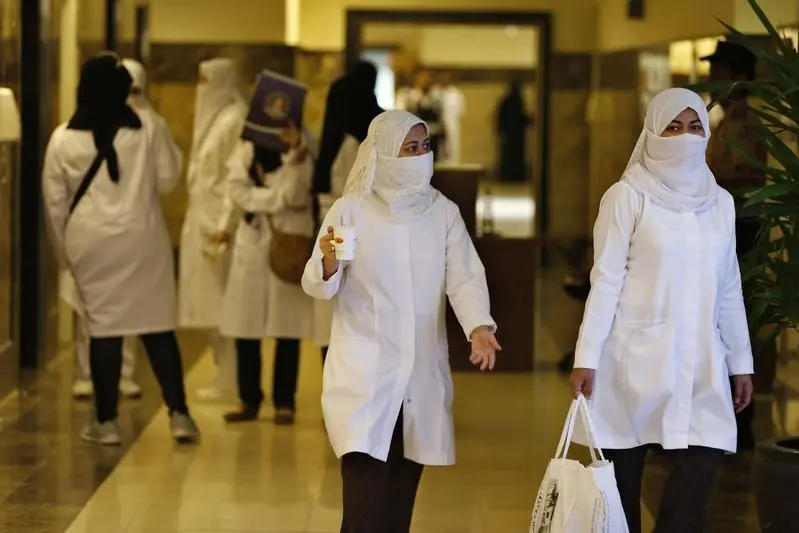PHOTO
12 July 2016
JEDDAH: The Ministry of Health recorded 49 fresh cases of Middle East Respiratory Syndrome coronavirus (MERS-CoV) during Ramadan.
Eighteen of these cases involved health care workers in Riyadh. Most of those infected had not been in contact with camels, the major source of the infection.
Since the beginning of Shawwal (July 6), three new cases of the virus were reported, according to reports from the ministry's Command and Control Center.
All hospitals are still required by the Ministry of Health to comply with WHO's health care guidelines in dealing with MERS, and follow all procedures of the public administration for prevention and infection control at the ministry. Hospitals must take all usual and specialized precautions when dealing with confirmed and suspected cases.
People should take precautions, such as washing their hands regularly, eating and sleeping well, and avoiding camel products, to prevent becoming infected with MERS, a local doctor said in an interview with Arab News recently.
Dr. Batool Mohammed Suliman Ali, an infectious diseases consultant, said MERS is from the big coronavirus family that can cause flu-like symptoms. The virus has mutated causing various complications, including death.
For symptoms of the infection, a fever of more than 38 degrees C, coughing and shortness of breath should ring a bell. Some people vomit and get diarrhea.
It spreads from person to person through contacts or droplets.
JEDDAH: The Ministry of Health recorded 49 fresh cases of Middle East Respiratory Syndrome coronavirus (MERS-CoV) during Ramadan.
Eighteen of these cases involved health care workers in Riyadh. Most of those infected had not been in contact with camels, the major source of the infection.
Since the beginning of Shawwal (July 6), three new cases of the virus were reported, according to reports from the ministry's Command and Control Center.
All hospitals are still required by the Ministry of Health to comply with WHO's health care guidelines in dealing with MERS, and follow all procedures of the public administration for prevention and infection control at the ministry. Hospitals must take all usual and specialized precautions when dealing with confirmed and suspected cases.
People should take precautions, such as washing their hands regularly, eating and sleeping well, and avoiding camel products, to prevent becoming infected with MERS, a local doctor said in an interview with Arab News recently.
Dr. Batool Mohammed Suliman Ali, an infectious diseases consultant, said MERS is from the big coronavirus family that can cause flu-like symptoms. The virus has mutated causing various complications, including death.
For symptoms of the infection, a fever of more than 38 degrees C, coughing and shortness of breath should ring a bell. Some people vomit and get diarrhea.
It spreads from person to person through contacts or droplets.
© Arab News 2016





















